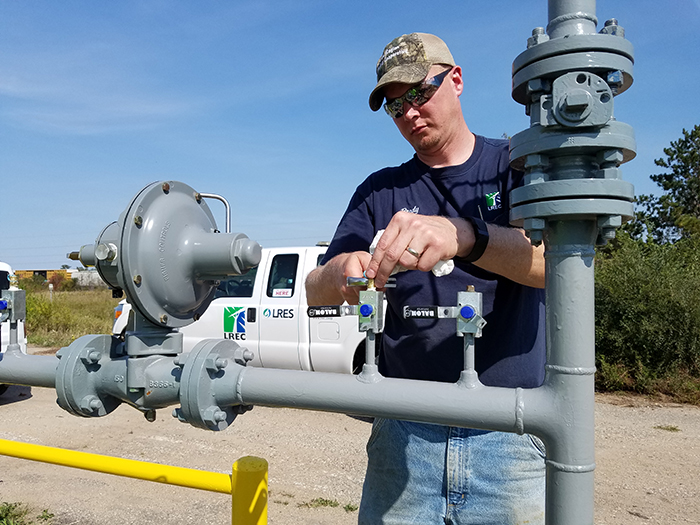
Small businesses served by Lake Region Electric Cooperative’s natural gas subsidiary got a nice surprise on their July bill: a 50% drop in their monthly utility fee.
The reduction in the facilities charge from $20 to $10 a month came after the co-op’s innovative gas rate commission examined the subsidiary’s fee structure in response to a rate change request from small businesses.
“After careful analysis, we found that the small commercial rate should just match the residential rate,” said Dylan Aafedt, vice president of business solutions for the co-op, based in Pelican Rapids, Minnesota. “Our goal is to provide the best possible rate for our customers.”
LREC created the commission in 2017 when it launched its gas unit so it could set rates locally to better reflect the needs and usage of its rural customers and keep service cost-efficient, LREC CEO Tim Thompson said.
The gas company, which is expected to top 1,000 customers this year, serves four towns that are outside the co-op’s electric territory. The commission structure effectively creates four separate three-member boards, one for each town made up of Thompson, Aafedt and the town’s mayor.
LREC won approval for the arrangement from the Minnesota Public Utilities Commission, arguing that a local commission was necessary for the gas service and its ratepayers to avoid the costly rules and rates that regulate the state’s large gas providers.
“Without this unique structure and approval from the PUC, this small gas company would not be able to afford the high costs of state regulation,” Thompson said. “If we had to file and support rate cases in St. Paul seeking rate adjustments over the course of time, the expense of doing so would be cost prohibitive.”
The co-op commission must submit its rate book to the PUC every year, among other requirements, but state regulators “don’t oversee us in any way as long as we complete our annual compliance filing,” Aafedt said.
“Our gas rate is to recover the cost of the physical plant, the pipe, the meters and the commodity price,” said Thompson. “In addition to homes and businesses, we serve churches, nursing homes and schools. If we can save them some energy dollars to redirect to education and benefit the kids, that’s a huge win.”
Convenience and savings of $300 to $500 per heating season for residential customers helped drive a steady flow of customers to the co-op’s natural gas business, he added. Other customers, such as grain dryers, turkey farmers and businesses, are seeing an even greater savings.
Darrick Moe, president and CEO of Minnesota Rural Electric Association in Maple Grove, said LREC’s gas enterprise—the only one of its kind in the state—represents the core co-op principle of “concern for community.”
“LREC built the whole thing by partnering with folks in their communities,” he said. “The whole thing is fantastic, and the homegrown commission is one piece that exemplifies that.”
Cathy Cash is a staff writer for NRECA.